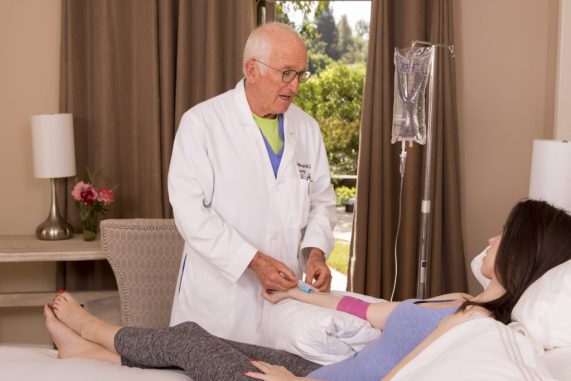Novo Detox is a treatment center with a detox and inpatient rehab facility that is fully accredited by The Joint Commission, the California Department of Health Care Services, and the Substance Abuse and Mental Health Services Administration (SAMHSA).
We are the best detox and rehab center for addiction for Austin, Texas residents because we have a full staff of caring and empathetic, dedicated experts available to our patients 24 hours a day, 365 days a year. Our drug and alcohol detox and rehabilitation programs have a high recovery rating, with our patients avoiding the ping pong effect.
Our Gallery
Why patients choose detox & rehab programs at Novo?
Focus on safety & comfort
24/7 supervised detox
Top Rated facility
Effective treatment
Healthy meals
Quick admissions
Evidence-based Therapy
Great locations Nationwide
- Rehab Near Me: Best Detox & Rehab Center For Addiction in Austin
- Highest Rated Alcohol Detox Program
- Drug Detox Program
- Top Alcohol Rehab in Austin
- Drug Rehab in Austin
- How Much Does Rehab Cost in Austin?
- How Long Is Detox?
- How Long Is Rehab?
- 30 Day Short Term Rehab
- Long-Term Rehab
- Additional Therapies & Addiction Treatments Available
- Does My Insurance Have Coverage For Rehab?
- MAT
- Cognitive Behavioral Therapy
- Dialectical Behavioral Therapy (DBT)
- Rational Emotive Behavioral Therapy (REBT)
- Dual Diagnosis Treatment
- EMDR
- Relapse Prevention
- Life Skills Training
- Vocational Training
- Group Therapy
- Experiential Therapy
- One-on-One Therapy
- Family Therapy
- Trauma Informed Therapy
- Physical Fitness
- Off-Site Activities
- 12-Step Rehab in Austin
- Anxiety Disorder
- Bipolar Disorder
- Borderline Personality Disorder
- Codependency
- Depression
- Impulse Control Disorder
- Post-Traumatic Stress Disorder
- Why Choose Novo Detox?
- Recovery Friendly Things to Do in Austin
Rehab Near Me: Best Detox & Rehab Center For Addiction in Austin
Substance abuse can be challenging for any person to deal with, which is one of the reasons you should not decide to attempt to work through the effects that your drug addiction or alcohol addiction has had on your life. As one of the best Austin treatment facilities, when you partner with the Novo Detox team, you can take comfort in the fact that our team will be there with you every step of the way. We offer individual treatment options so that you can get the personalized help and care you need as you navigate through your substance abuse issues.

Highest Rated Alcohol Detox Program
It’s important to understand that you may have to begin a medically supervised detox as part of your individualized treatment plans. The reason for this is that within hours of consuming your last drink, you may experience withdrawal symptoms, making it challenging if not impossible for you to care for yourself. You must be completely transparent regarding the extent of your alcohol abuse so that our team can determine whether or not you need to begin your treatment in our detox center.
Drug Detox Program
In the same way that individuals with an alcohol addiction may need to begin their recovery in our detox center, individuals who struggle with drug addiction may also need to begin their care program in detox. Our Austin rehab provides detox so that you have the comfort of knowing that medical experts will care for you around the clock during this stage of your treatment. On average, a detox care program will last approximately seven days during which time you will receive the around-the-clock care that you need. Our team works quickly to get you into our detox center so that you’re never put in a position of being put in a potentially fatal position.
Top Alcohol Rehab in Austin
Alcohol rehab will help you start healing from your addiction and provide you with access to the tools and resources needed to maintain your long-term sobriety. Whether you decide to commit to inpatient rehab or an outpatient treatment program, you will experience different forms of addiction therapy and other activities which will help you identify the root cause of your addiction so that you can begin to recover and heal from it.
Drug Rehab in Austin
In many ways, alcohol rehab and drug treatment in Austin are similar in that the focus of these residential treatments or intensive outpatient treatment programs is on providing you with the stability and care you need as you begin to work through your substance abuse issues. Once you complete medical detoxification, you can transition into an addiction treatment program in Austin drug rehab and begin your individual treatment program.
How Much Does Rehab Cost in Austin?
One of the common questions that potential clients ask regarding a general or medication-assisted treatment program revolves around the cost of care. It’s important to understand that every treatment plan that we offer at Novo is customized to suit the needs of our clients. Therefore, the cost of your treatment program may be very different from that of another person. When you reach out to our drug and alcohol rehab in Austin, we can provide you with more information regarding the expense of a treatment program.
How Long Is Detox?
In most cases, individuals will need to spend a minimum of seven days in addiction treatment. You will experience the worst of your withdrawal symptoms within the first 72 hours of your time in detox. This is one of the most challenging parts of your recovery because withdrawal symptoms can be incredibly uncomfortable if not potentially fatal. Therefore, you must never attempt to go through the detox process unless you’re under the care of a medical professional who has been specifically trained to assist.
How Long Is Rehab?
As part of your personalized treatment program, you will also have the opportunity to choose the length of time that you spend in treatment. It’s important to note that the length of time you spend in addiction recovery is flexible. Therefore, you can start off with a 30-day program and transition into a longer 60 or 90-day addiction recovery plan.
30 Day Short Term Rehab
A 30-day treatment program is commonly known as a short-term rehab. This treatment program can provide you with the basis you need to begin your recovery. During these initial 30 days in inpatient or outpatient treatment, you will learn more about the disease of addiction and the steps you can take to maintain your sobriety going forward.
Long-Term Rehab
For some people, 30 days in an addiction treatment program is simply not enough time to be able to successfully complete a recovery program. This is why they opt to work through a 60 or 90-day treatment program. This long-term rehab program provides an extended opportunity to recover from your addiction and learn more about the role that addiction can play on your overall physical and psychological health and well-being. Remember, if you begin in a 30-day program, you can always extend your recovery plan into a 60 or 90-day plan. You can also transition from inpatient treatment into an outpatient treatment program at any point.
Additional Therapies & Addiction Treatments Available
At Novo Detox, we recognize the fact that for a person to be able to heal from the traumas in their life that may have impacted their sobriety, that person needs to participate in different forms of therapy to address these issues and challenges in their life. Although therapy is indeed something that can feel overwhelming or confusing at times, it’s an important factor in your overall recovery. We utilize evidence-based treatment and therapy to help provide you with the best recovery results.
Does My Insurance Have Coverage For Rehab?
One of the questions that many people have when it comes to their stay in a rehab facility is regarding the opportunities that they have to take advantage of health insurance to cover the cost of their stay in treatment. Due to the fact addiction is a disease, there is a strong likelihood that your private insurance carrier would provide coverage for both detox and rehab. The best way to determine this would be to verify your insurance coverage. This is something that our recovery team can help you to do so that you can tap into your insurance.
MAT
Medication-assisted treatment, also commonly referred to as MAT, is a treatment option that can be utilized during both detox as well as during your formal treatment process. Using a MAT program gives you access to certain medications that can help you better manage the withdrawal symptoms that you may experience during detox and cravings that you may experience as you begin your recovery journey.
Cognitive Behavioral Therapy
Cognitive Behavioral Therapy is a form of therapy that is fundamental in addiction treatment because it can help to address a wide range of psychological issues as well as addiction. When a person is more aware of their behavior and how they react to certain situations, they can take steps to change those behaviors and substitute them for healthier solutions, which can ultimately help a person to remain focused on their overall sobriety.
Dialectical Behavioral Therapy (DBT)
Dialectical Behavioral Therapy, also called DBT, is a form of therapy that can help you be more mindful of your reactions to certain situations. Unfortunately, while you were in active addiction, you may have picked up on some negative behaviors. DBT will help you to be more aware of them so that you can continue to change them for healthier solutions in the future.
Rational Emotive Behavioral Therapy (REBT)
As a consequence of addiction, many people aren’t able to experience emotions in a way that is healthy. Rational Emotive Behavioral Therapy (REBT) will walk you through the process of feeling more comfortable with your emotions, so you don’t feel as though you need to hide from them.
Dual Diagnosis Treatment
Did you know that it’s not uncommon for a person who suffers from an addiction to also struggle with some form of mental health issues? You would greatly benefit from dual diagnosis treatment if you fall into this category. Dual diagnosis treatment allows you to address both your addiction and lingering mental health issues such as depression or anxiety. Although many people still have a negative stigma that is associated with mental health issues, at Novo, we will help you to understand that good mental health is key for you to be able to maintain your sobriety.
EMDR
Re-living traumas is something that is challenging for many people. EMDR is a form of guided therapy that can help you work through these traumas in a way that will not make you feel as though you will be re-traumatized by thinking about these events. The number of EMDR sessions that you need will be something that will be determined once you come to our facility for treatment and we get to know you more.
Relapse Prevention
The main focus of your time in treatment will not only be to address the root cause of your substance abuse but also on what steps you can take to prevent relapse in the future. It’s important to recognize the fact that there is always the possibility that you may relapse at some point in your life. If you do relapse, we strongly recommend that you reach out to our recovery team as soon as possible. Unfortunately, when a person does relapse, they tend to fall further into their substance abuse before they reach out for help. Our team will never be judgmental and is only here to provide you with the help and care you need.
Life Skills Training
During the time that you were in active addiction, there is a possibility that you missed out on learning life skills that would only help you in your life overall. As part of your recovery process, we will help you learn these life skills which can help improve your quality of life but also help you to better interact and build more meaningful relationships with others who are important in your life.
Vocational Training
It is no surprise that addiction can hold you back from going after a career that may interest you. Therefore, something else that we also offer as part of our addiction treatment programs includes vocational training. Vocational training will give you the basis for pursuing the type of career you want once you work through the recovery process.
Group Therapy
One of the addiction’s downfalls is that it can make you feel completely alone. However, the reality is that countless others may have experienced similar experiences with whom you should connect. Through group therapy, you will be able to share the group topic for that day and listen to the experiences of others in your group. Actively sharing and listening during group therapy is something that can help you to build your system of support which is something that is critical during your recovery. You will notice that group therapy is similar to an Alcoholics Anonymous or Narcotics Anonymous meeting.
Experiential Therapy
Many people struggle to express themselves when it comes to their recovery. Through different experiential therapies such as art therapy or music therapy, an individual may find the comfort they need to work through the contributing factors of their addiction and find the comfort and peace they need to continue in their recovery journey.
One-on-One Therapy
If you had a particularly traumatic event, it’s possible that you may not feel comfortable sharing about these events in a group setting. During one-on-one therapy, you can speak personally and privately with your treatment team to address these issues. Individual therapy also gives you an excellent opportunity to be able to discuss your current treatment plan and make any changes that may need to be made. Our recovery team will help you to make those changes right away so that you can continue to make the most out of your recovery program.
Family Therapy
Unfortunately, the relationships that you have with your family are something that can be negatively impacted as a result of your substance abuse. However, once you have found some stability in your recovery, family therapy is something that can help you begin to put those relationships back together with your loved ones. Family therapy can also benefit your family members because it can help them better understand the disease of addiction.
Trauma Informed Therapy
Learning more about the traumas you may have experienced throughout your life is key to your recovery. Trauma-informed therapy is an example of a therapy that can help you to do just that. Not only will you have the opportunity to address your traumas but you will also be able to learn what steps you can take to manage traumas that you may experience in the future.
Physical Fitness
Working out regularly is one of the best things that you can do for your overall recovery process. Whether you have worked out in the past and fallen out of it or this is your first time trying to get onto a workout schedule, our recovery team can help you to find the exercise that is right for you which can help to boost your endorphins and help you to feel better both physically and psychologically.
Off-Site Activities
As part of your treatment plan, you will also have the opportunity to participate in different off-site activities. Our treatment team will organize these off-site activities as a way to get to learn more about yourself now that you’re no longer under the influence of drugs or alcohol.
12-Step Rehab in Austin
A 12-step program is a type of treatment program that follows the premise of Alcoholics Anonymous and Narcotics Anonymous steps. There are 12 steps associated with the framework of these programs that can help you recognize that you have a drug or alcohol addiction and what you can do to heal yourself and your relationship with others. The 12 steps are as follows:
- Admitted we were powerless over alcohol — that our lives had become unmanageable.
- Came to believe that a Power greater than ourselves could restore us to sanity.
- You decided to turn our will and our lives over to the care of God as we understood Him.
- Made a searching and fearless moral inventory of ourselves.
- Admitted to God, to ourselves, and to another human being the exact nature of our wrongs.
- Were entirely ready to have God remove all these defects of character.
- Humbly asked Him to remove our shortcomings.
- Made a list of all persons we had harmed and became willing to make amends to them all.
- Made direct amends to such people wherever possible, except when to do so would injure them or others.
- Continued to take personal inventory and when we were wrong promptly admitted it.
- Sought through prayer and meditation to improve our conscious contact with God as we understood Him, praying only for knowledge of His will for us and the power to carry that out.
- Having had a spiritual awakening as the result of these Steps, we tried to carry this message to alcoholics and practice these principles in all our affairs.
Anxiety Disorder
Anxiety is something that can completely paralyze a person. When people suffer from an anxiety disorder, they may turn to drugs and alcohol to cope with their anxiety. In reality, drugs and alcohol only tend to exacerbate anxiety, which can trigger a person to spiral into substance abuse.
Bipolar Disorder
When diagnosed with bipolar disorder, people often experience constant and extreme shifts in moods and behaviors. Bipolar disorder can often be masked as a result of substance abuse, and the symptoms of this disorder can also be hidden by substance abuse.
Borderline Personality Disorder
A borderline personality disorder is a psychological disorder that impacts how individuals think about themselves and those around them. One of the challenging aspects of borderline personality disorder is the constant mood changes which can often lead a person to some type of substance abuse.
Codependency
Codependency is something that can impact not only an individual who is combating addiction but also their friends and family members. A friend or family member may unknowingly be feeding the addiction or issues of their loved one which could trigger further issues. During treatment, both you and your family will have the opportunity to learn more about the negative consequences of codependency and how you and your family can begin to put your relationships back together again.
Depression
Depression is a serious mental health condition that impacts the way that an individual may act or react to certain situations. In most cases, a person with some form of depression can feel like they are in a bottomless pit that they cannot seem to come out of. Unfortunately, if a person does not receive help to address their depression, they may turn to addictive substances as a way to self-medicate. If you are suffering from depression in addition to a drug or alcohol addiction, our treatment team can help you to address your mental health concerns so that you can begin to recover from both your depression as well as your substance abuse.
Impulse Control Disorder
When a person suffers from impulse control disorder, they struggle with an inability to control their self-control in various ways. This is a condition that those with an addiction often have as they cannot control their substance abuse. One of the great things about addiction recovery treatment is that you will learn more about the genesis of your impulse control issues and learn behavior that will help you recognize and better manage those impulses going forward.
Post-Traumatic Stress Disorder
Post-traumatic stress disorder is something that countless people around the world struggle with for a variety of different reasons. For example, it’s not uncommon for a police officer or a veteran to struggle with post-traumatic stress disorder, also referred to as PTSD, as a result of something that they witnessed or experienced while on the job. It’s also possible that an individual may suffer from PTSD if they are the victim of some type of physical or emotional abuse. PTSD is something that can result in an individual turning to substance abuse to be able to cope with what they are thinking or feeling. When you commit to treatment at Novo, not only will you receive addiction treatment but you will also receive assistance in working through your PTSD.
Why Choose Novo Detox?
When you decide to work with the Novo Detox team, you will benefit from taking advantage of individualized treatment plans that will help you identify the root causes of your addiction. Our treatment in Austin ranges from inpatient rehab to outpatient treatment programs and medically supervised detox programs so that you can begin your drug addiction or alcohol addiction treatment on the right foot.
The Novo Detox team is dedicated to providing every person with the individualized care they need as they recover from the negative impacts of addiction. Our team always goes the extra mile to learn more about the clients that come to our treatment center with the understanding that every person has their own unique story and struggle. Our intake team is available around the clock, and our addiction specialists are always available to see to any of the questions or concerns that you or your loved ones have regarding our treatment programs.
Another reason why so many people opt to work through Novo for their substance abuse recovery needs is that we offer both sober living and aftercare treatment options. Once you complete your initial treatment program, transitioning into a sober living or aftercare program is something that can reinforce the important tools that you learned during the time that you were in treatment. The Novo team will discuss these options with you in more detail once you begin to come to the end of your treatment plan.
Recovery Friendly Things to Do in Austin
Once you complete your addiction recovery program, it’s understandable that you will want to start to learn more about your likes and dislikes now that you’re a sober individual. The great thing about living in Austin is the fact that there are numerous sober-friendly activities that you can do once you return back home. Here are some examples:
Zilker Park
If you enjoy being outdoors, one of the best places for you to visit is Zilker Park. This 351-acre piece of property features a variety of recreational attractions including volleyball courts, walking trails, and playgrounds, making it excellent for a family visit.
You can visit Zilker Park at 2100 Barton Springs Road, Austin, Texas
Bullock Texas State History Museum
Are you interested in learning more about the history of the state of Texas? One of the best places to visit is the Bullock Texas State History Museum. This museum tells the story of Texas in a unique way from the state’s development and the fall of the Alamo. It’s definitely a must-see attraction.
Bullock Texas State History Museum is located at 1800 Congress Avenue, Austin, Texas
Lyndon Baines Johnson Library and Museum
Dedicated in 1971, the Lyndon Baines Johnson Library and Museum remains one of the Austin area’s most popular places to visit. This library and museum tells the story of President Johnson who became president due to the assassination of John F. Kennedy. This location features a variety of exhibits so that visitors can get a great feeling for the type of man and president that Johnson was.
The Lyndon Baines Johnson Library and Museum is located at 2313 Red River Street, Austin, Texas
McKinney Falls State Park
McKinney Falls State Park is one of the most beautiful places to visit in Austin, Texas. It’s home to one of the most beautiful waterfalls in Texas and provides an excellent mix of outdoor activities that you can take part in during your visit.
You can visit McKinney Falls State Park at 5808 McKinney Falls State Parkway, Austin, Texas.
Are you ready to commit to a life of sobriety? The Novo Detox team is here and ready to help you. We have helped numerous Austin residents tackle their addictions and lead healthy and successful lives. For more information about our treatment programs, we encourage you to contact us today.










